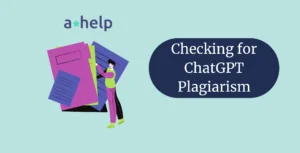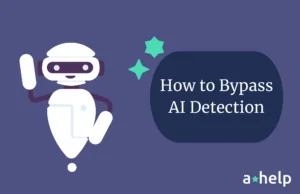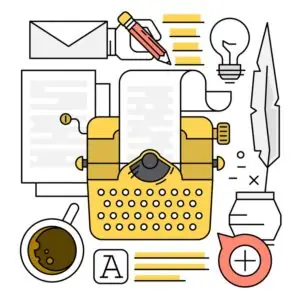When artificial intelligence (AI) can mimick human behavior really well, the authenticity of online content is…well, questionable. As AI-generated content becomes more popular, some tend to abuse it and generate content with little to no moderation. Questions come up about whether search engines like Google can effectively detect such content. If you want a brief answer, yes, Google can detect AI-generated content. Especially if it lacks human-like qualities such as creativity, originality, and context.

✅ AI Essay Writer ✅ AI Detector ✅ Plagchecker ✅ Paraphraser
✅ Summarizer ✅ Citation Generator
Understanding AI-Generated Content
AI has made remarkable strides in generating human-like text, thanks to the continuous advancements in algorithms and neural networks. Models such as GPT-3 (Generative Pre-trained Transformer 3) and BERT (Bidirectional Encoder Representations from Transformers) represent the pinnacle of this progress. Leveraging vast datasets and complex architectures, these models have demonstrated the ability to produce content that is not only coherent and contextually relevant but also remarkably similar to human-written text in style and tone. This blurring of the lines between AI-generated and human-generated content presents serious challenges for detection algorithms and methodologies. As AI continues to evolve and improve and more people look for advice on how to write a paper using AI, the task of differentiating between AI-generated and human-generated content becomes harder and harder.
Challenges in Detecting AI-Generated Content
Detecting AI-generated content poses challenges for search engines like Google. Firstly, AI-generated content can be quite similar to human-written content in terms of grammar, syntax, and coherence (although personal style is certainly a deal-braker). Although you can often clearly see when a text is raw AI output, but certain AI detectors it creates a problem.
| Challenges in Detecting AI-Generated Content |
| 📖 Indistinguishable Grammar and Syntax |
| 👓 Complexity of Coherence |
| 🤖 Continual Improvement of AI Models |
Current detection methods and algorithms may struggle to differentiate between the two, especially as AI models continue to improve. As a result, cases where AI-generated content slips through undetected are not uncommon, and people are starting to trust such sources less and less. Which is why it is necessary to continue the ongoing research and development in writer AI detector and its technologies, as it directly impacts search engine results.
Here’s an example of AI-generated text.
“Autumn is a season that brings with it a sense of melancholy and nostalgia. The leaves change color, falling gently to the ground like whispers of forgotten dreams. The air grows crisper, carrying the scent of wood smoke and memories. It’s a time of transition, of letting go of the past and embracing the unknown future. As the days grow shorter and the nights longer, there’s a sense of quiet anticipation, a feeling that anything is possible.”
Flaws in the AI-generated text:
- The text uses vague and clichéd phrases like “whispers of forgotten dreams” and “embrace the unknown future,” which do not add depth to the description or any real value.
- The language used is overly flowery and melodramatic, lacks the subtlety and human expression, emotions.
- The text jumps between different themes and ideas without clear transitions, and is a disjointed and confusing narrative.
- The text lacks a personal perspective or unique voice, it feels more like a generic description than a genuine expression of thought or emotion.
Efforts to Detect AI-Generated Content
Despite the challenges, search engines like Google have implemented strategies to detect AI-generated content. These efforts often include the use of various machine learning algorithms and natural language processing techniques. Search engines can identify anomalies that may suggest AI involvement in content creation by analyzing patterns, language nuances, and other indicators.
See proof with our Free AI Detector
Besides, collaboration with AI researchers and developers helps boosting detection capabilities, so that search results are relevant and credible and not just some copy-pasted generic nonsense. It is safe to say that constant improvement and adaptation of detection methods are absolutely vital not only to keep pace with advancements in AI technology, but also to keep people who like to overuse it in check.
Some AI-powered tools are amazing and genuinely bring writing to the next level. However, we should all use them with caution and remember about possible downsides. Consider exploring this AI checker essay, a new advanced tool that will revise your academic paper and provide detailed feedback. It would be wise to start using AI not to generate new content but to streamline writing processes.
FAQ
Follow us on Reddit for more insights and updates.





Comments (0)
Welcome to A*Help comments!
We’re all about debate and discussion at A*Help.
We value the diverse opinions of users, so you may find points of view that you don’t agree with. And that’s cool. However, there are certain things we’re not OK with: attempts to manipulate our data in any way, for example, or the posting of discriminative, offensive, hateful, or disparaging material.